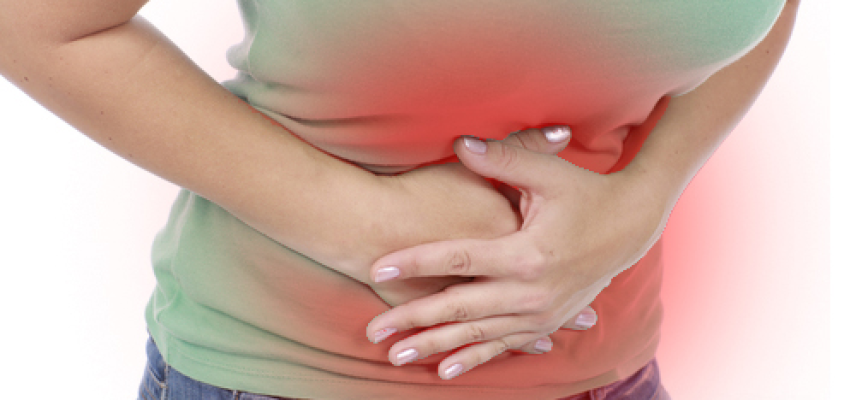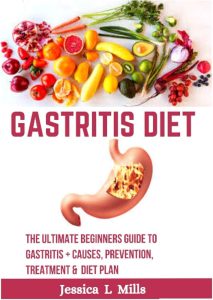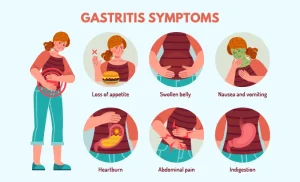
Foods that will cure gastritis forever
 While no single food can cure gastritis forever , dietary changes can help manage and reduce gastritis symptoms. Gastritis refers to inflammation of the stomach lining, often caused by factors like H. pylori infection, excessive alcohol use, stress, or prolonged use of NSAIDs. Treating gastritis typically involves addressing the root cause, such as eradicating H. pylori with antibiotics or reducing stomach acid with medications.
While no single food can cure gastritis forever , dietary changes can help manage and reduce gastritis symptoms. Gastritis refers to inflammation of the stomach lining, often caused by factors like H. pylori infection, excessive alcohol use, stress, or prolonged use of NSAIDs. Treating gastritis typically involves addressing the root cause, such as eradicating H. pylori with antibiotics or reducing stomach acid with medications.
However, certain foods may help soothe the stomach lining and promote healing. Here's a list of gastritis-friendly foods:
Foods That May Help Heal Gastritis
- Probiotic-Rich Foods:
- Yogurt with live cultures
- Kefir
- Sauerkraut
- Kimchi
- Miso
- Pickles (fermented in brine, not vinegar) Probiotics can support gut health and help combat H. pylori infections.
- High-Fiber Foods:
- Oatmeal
- Brown rice
- Whole grains
- Vegetables like carrots, broccoli, and leafy greens
- Apples, pears, and berries Fiber can promote digestive health and reduce acid reflux.
- Anti-Inflammatory Foods:
- Turmeric (with black pepper for better absorption)
- Ginger (as tea or fresh)
- Green tea with honey
- Fatty fish (rich in omega-3s, like salmon and mackerel) These can reduce inflammation in the stomach lining.
- Low-Acid Fruits:
- Bananas
- Melons
- Papayas These are gentle on the stomach and may help neutralize acid.
- Non-Spicy Vegetables:
- Zucchini
- Sweet potatoes
- Spinach
- Cauliflower These are easy to digest and won’t irritate the stomach.
- Lean Proteins:
- Skinless poultry
- Fish
- Tofu
- Eggs These are gentle on the stomach and help with repair.
- Healthy Fats:
- Olive oil
- Avocado
- Nuts (in moderation) These fats are less likely to trigger inflammation.
Foods to Avoid
To prevent exacerbation of gastritis, steer clear of:
- Spicy foods (e.g., hot peppers, chili powder)
- Acidic foods (e.g., tomatoes, citrus fruits)
- Fried or fatty foods
- Caffeinated beverages (e.g., coffee, energy drinks)
- Alcohol
- Carbonated drinks
- Processed foods
Other Tips for Long-Term Management
- Eat Smaller Meals: Avoid large meals; smaller, more frequent meals are easier on the stomach.

- Stay Hydrated: Drink plenty of water, but avoid drinking too much during meals.
- Chew Thoroughly: Proper digestion starts in the mouth.
- Manage Stress: Stress can worsen gastritis, so practice relaxation techniques like meditation or yoga.
- Stop Smoking: Smoking can irritate the stomach lining.
- Consult a Doctor: If H. pylori is the cause, antibiotics and other treatments are necessary.
A permanent "cure" depends on the underlying cause of the gastritis, so combining dietary changes with appropriate medical treatment is key. Would you like guidance on a specific meal plan for gastritis?
Certainly! Let’s go into more detail about foods and strategies for managing gastritis and potentially promoting long-term stomach health.
Detailed Food Recommendations for Gastritis Relief
1. Probiotic-Rich Foods
Probiotics help restore the balance of good bacteria in your gut, which is particularly important if your gastritis is caused by H. pylori infection.
- Yogurt: Choose plain, unsweetened yogurt with live cultures (look for labels with "active or live cultures").
- Kefir: A fermented milk drink with high probiotic content.
- Fermented Vegetables: Sauerkraut, kimchi, and pickles (choose ones fermented naturally, not in vinegar).
- Miso and Tempeh: Fermented soy products that improve gut health.
- Kombucha: A fermented tea that supports digestion.
2. High-Fiber Foods
Fiber helps reduce gastric acid and promotes smooth digestion.
- Vegetables: Leafy greens (spinach, kale, Swiss chard), carrots, and broccoli.
- Fruits: Apples, pears, bananas, and melons are soothing for the stomach.
- Whole Grains: Oats, quinoa, brown rice, and whole wheat bread.
- Legumes: Lentils, chickpeas, and black beans (in moderation, as they can cause gas).
3. Alkaline and Low-Acid Foods
These foods can help neutralize stomach acid and reduce irritation:
- Bananas: Naturally alkaline, gentle, and easy to digest.
- Melons: Cantaloupe and honeydew have a calming effect on the stomach.
- Root Vegetables: Sweet potatoes, beets, and carrots are excellent choices.
- Coconut Water: Natural electrolytes make it soothing for the stomach lining.
4. Anti-Inflammatory Foods
These foods reduce inflammation in the stomach lining:
- Ginger: Known for its anti-inflammatory properties, it can be consumed as tea or added to food.
- Turmeric: Contains curcumin, which reduces inflammation; use it in cooking or take a supplement.
- Green Tea with Honey: The polyphenols in green tea may help reduce H. pylori activity, and honey has natural antibacterial properties.
- Omega-3 Fatty Acids: Found in salmon, mackerel, flaxseeds, and walnuts.
5. Easily Digestible Proteins
Lean proteins are essential for tissue repair without overloading the stomach:
- Poultry: Skinless chicken or turkey.
- Fish: Non-fried options like cod, tilapia, and salmon.
- Eggs: Boiled or poached for easier digestion.
- Plant-Based Proteins: Tofu and lentils are excellent options.
6. Soothing Foods
These foods help calm the stomach lining and reduce acid production:
- Oatmeal: A neutral, filling food that’s easy on the stomach.
- Chamomile Tea: Known for its calming effects on digestion.
- Potatoes: Boiled or mashed without butter.
- Licorice Root: Helps coat and protect the stomach lining (opt for deglycyrrhizinated licorice to avoid side effects).
Foods and Drinks to Strictly Avoid
Certain foods can irritate the stomach lining, delay healing, or exacerbate symptoms:
- Spicy Foods: Chili peppers, hot sauce, curry powder.
- Fried and Greasy Foods: Chips, fried chicken, and burgers.
- Citrus Fruits: Oranges, lemons, limes, and grapefruits.
- Tomato-Based Products: Tomato sauce, ketchup, and salsa.
- Alcohol: Any type of alcohol can irritate the stomach lining.
- Caffeine: Coffee, energy drinks, and black tea (switch to decaf or herbal tea).
- Sodas and Carbonated Beverages: Can cause bloating and increase acid production.
- Processed Foods: Fast foods, frozen dinners, and packaged snacks.
Additional Strategies for Gastritis Relief
- Avoid Eating Late at Night: Lying down with a full stomach can worsen acid reflux and gastritis symptoms.
- Stay Upright After Meals: Wait at least 2–3 hours before lying down after eating.
- Hydration: Drink water throughout the day, but avoid drinking too much with meals to prevent diluting stomach acid.
- Portion Control: Eat smaller meals to avoid overloading your stomach.
- Chew Slowly: Proper digestion begins in the mouth, so take your time while eating.
- Eliminate Stress: Stress exacerbates gastritis, so incorporate relaxation techniques like yoga, meditation, or deep breathing.
- Monitor Food Intolerances: Keep a food diary to identify any specific foods that trigger your symptoms.
When to Seek Medical Attention
Gastritis can often be managed with dietary changes, but a complete cure might require medical treatment, especially in cases caused by H. pylori, autoimmune conditions, or chronic NSAID use. See your doctor if:
- Symptoms persist for more than a few weeks.
- You experience severe abdominal pain, vomiting, or black stools (a sign of bleeding).
- You have an H. pylori infection (requires antibiotics).
By adopting a gastritis-friendly diet and combining it with stress management and healthy lifestyle habits, you can significantly reduce symptoms and promote long-term stomach health. Let me know if you'd like me to help you create a detailed meal plan or shopping list!
Promoting a balanced life with organic foods, healthy recipes, and medical information for better wellness.
© 2024 DailyMeidicure.com. All Rights Reserved. Content on this site is for informational purposes only.